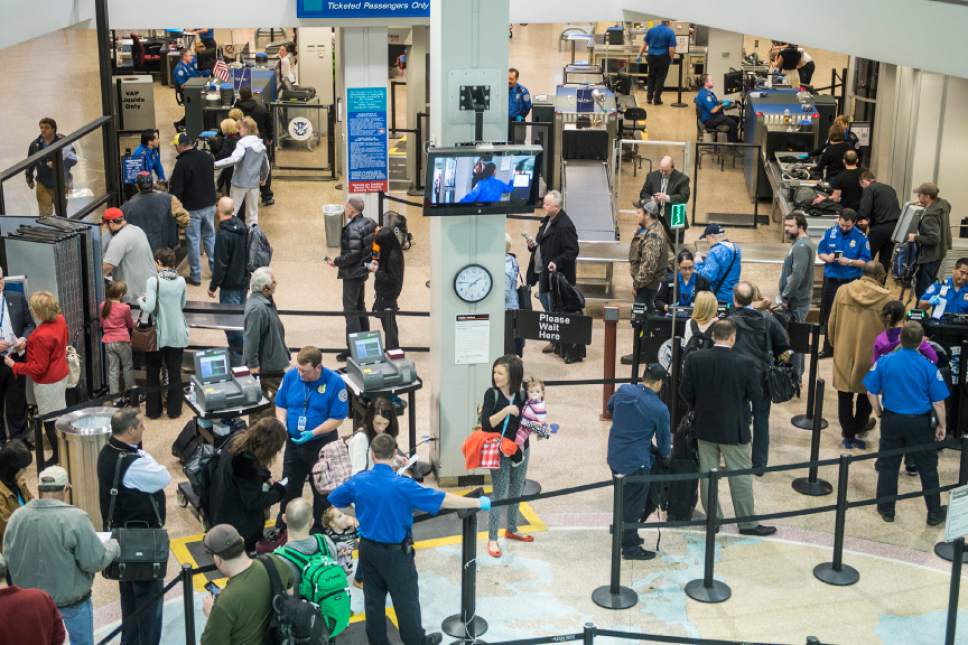This is an archived article that was published on sltrib.com in 2017, and information in the article may be outdated. It is provided only for personal research purposes and may not be reprinted.
In the wake of a viral video of Chicago police security officers dragging a passenger off an overbooked United Airlines flight, Salt Lake City International Airport police are serving notice to airlines that they will not remove passengers from airplanes simply for violating company rules.
Because of the global outrage over the Chicago incident, in which a doctor was forcibly removed after refusing crew orders to vacate his seat, the Salt Lake City Airport Advisory Board asked Wednesday how its police handle similar situations — adding they fear the liability that could come from such removals.
"We don't get involved in the civil issues or the rules of private companies," Airport Police Chief Craig Vargo told members, and officers will not remove passengers simply because of such things as overbooking problems, or someone violating rules about dress.
"We've also talked with a number of the airlines and station managers to emphasize to them that we do not do that job. That's for them to do," the chief said.
"We will be there to keep the peace, but we will not go on to pull people off simply because they broke a company rule," he said.
Board members praised the stance as appropriate.
Vargo said since the Chicago incident, his agency re-emphasized with its officers that they should not automatically get involved "simply because the airplane's pilot wants someone removed."
Instead, he said they are trained to check whether laws have been violated, including whether a passenger has illegally interfered with the flight crew.
"We go on board for such things as disorderly conduct with people fighting or drunkenness," the chief told The Tribune, or for passengers refusing to follow instructions that may endanger a flight "such as getting up and walking during taxiing, refusing to stay in a seat, going to the bathroom when they shouldn't" and similar issues.
He said such people are usually referred to the FBI for potential federal charges, but his agency also sees whether local laws have been violated and may charge them for that.
Vargas acknowledged that sometimes the difference between enforcing a company rule and the law can be a fine line — especially if differences escalate into a fight.
"We keep the peace, but don't enforce company rules. That's their responsibility," he told The Tribune.



